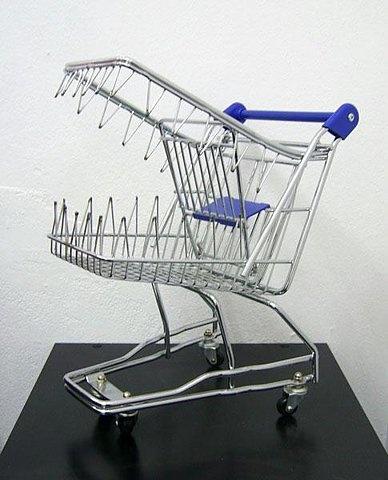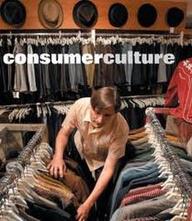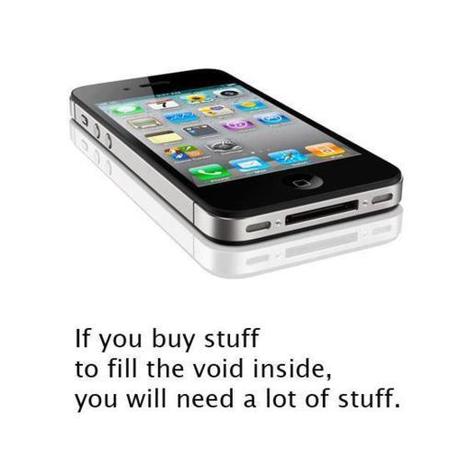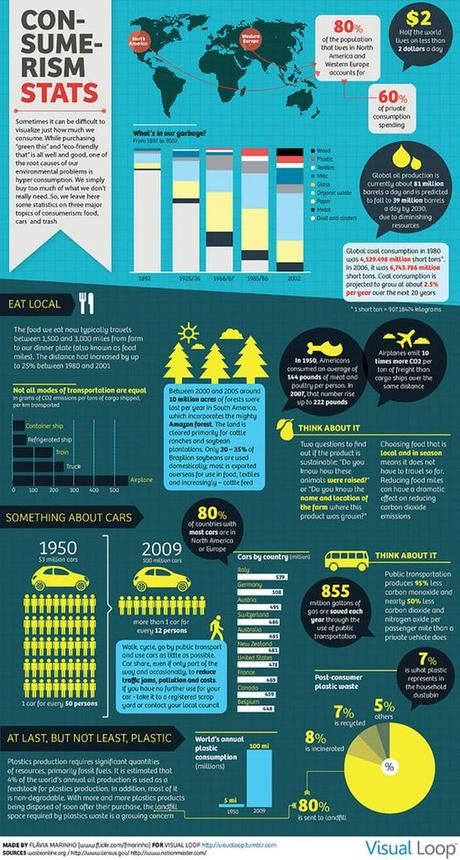 Consumer culture has bombarded American society and fed into our every greedy desire. The media swamps us with ads and contributes to our purchase identity. We are told what we should have and to obtain mass quantities of products we shouldn't even need. Our interests have turned to luxurious spending on luxury items. We have blurred the line between necessity and luxury. Society has created the desire to own, and that desire has manifest into crisis level spending.
Consumer culture has bombarded American society and fed into our every greedy desire. The media swamps us with ads and contributes to our purchase identity. We are told what we should have and to obtain mass quantities of products we shouldn't even need. Our interests have turned to luxurious spending on luxury items. We have blurred the line between necessity and luxury. Society has created the desire to own, and that desire has manifest into crisis level spending.Half of the world lives on $2 a day while America accounts for over half of the world's private consumption spending. We are told to believe if we spend more our economy will thrive. What does it say about our country, when people are knee deep in credit card debt yet still continues to contribute to the problem by spending more than they make? There is a bottomless hole in some of our pockets, and endless need to posses and own.
Consumption and ownership is only natural. It's the lengths that we take it to that are obscene. In 2009 American's reportedly owned 500 million cars. That's 1 car for every 12 people. Yet America is still not the worst. New Zeland, Australia, Switzerland, Austria, Germany and Italy all beat out America when comparing the number of cars owned. North America and Europe have more cars combine than in the rest of the world put together. It is understandable that we will want to have cars, it is human nature to make our lives easier, it's understandable that we would use a lot of products that make our lives simpler.
 The problem evolves when we begin to over consume and take more than our fair share. We begin purchasing things that we will never even use, for that "just in case" moment. Every new cell phone, 10 gray tshirts, 40 pair of shoes... and the list goes on. How many forks are in your house, how many do you actually need. We all have possessions, it's when we loose the value of those possessions that we begin to corrupt ourselves and our consumerist nature.
The problem evolves when we begin to over consume and take more than our fair share. We begin purchasing things that we will never even use, for that "just in case" moment. Every new cell phone, 10 gray tshirts, 40 pair of shoes... and the list goes on. How many forks are in your house, how many do you actually need. We all have possessions, it's when we loose the value of those possessions that we begin to corrupt ourselves and our consumerist nature.How do we avoid becoming obsessive consumers? First we have to analyze our individual and social spending habits. Are we spending more than we are making or saving? Where is our money going? Second we have to accept that we do not need possessions to enjoy our lives or to make us happy. We should learn that value is subjective when it comes to possessions, but the value we find in ourselves and our fellow humans is important to our life's fulfillment. If you can't feel it in your heart or if you can't justify needing it, you shouldn't assume it will improve the quality of your life. You have to learn to suppress your desire to own and possess, focus your interests on what really makes your soul rejoice.



